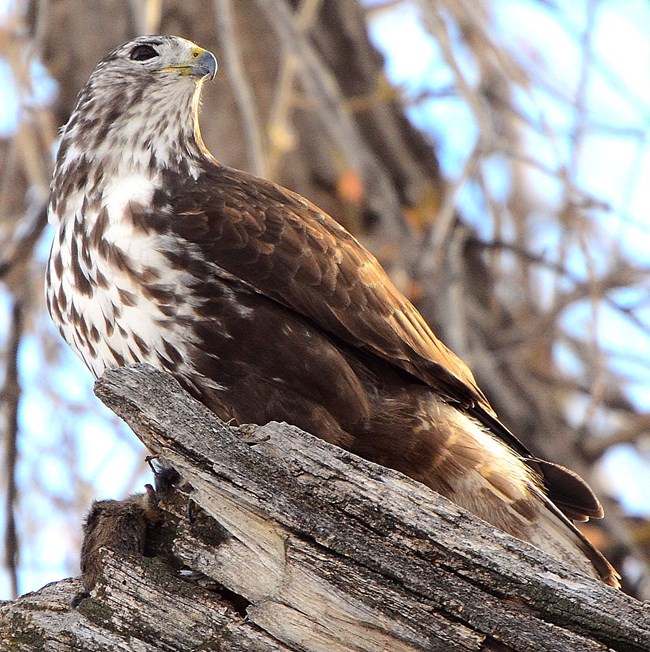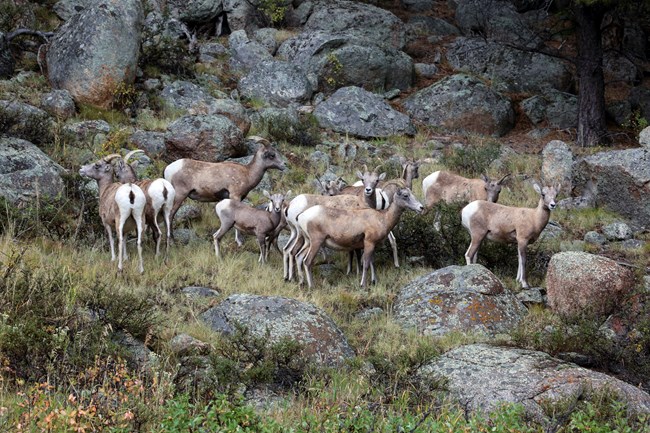Why are there Area Closures in Place?In order to protect the park's resources, the Superintendent may close certain areas of the park throughout the year. Some areas may be closed for weeks or months and some areas in the park are closed year round. Entering closed areas is a violation of 36 CFR 1.5. Violators are subject to a fine of $5,000 and/or 6 months imprisonment. 
NPS Elk Rut ClosuresSeptember 1 through October 31To prevent disturbance and harassment of elk during the fall mating period and to enhance visitor elk-viewing opportunities, areas in Horseshoe Park, Moraine Park, Upper Beaver Meadows, Harbison Meadow, and Holzwarth Meadow are closed to the following acts from 5 p.m. to 10 a.m. daily:

NPS Photo Tundra ClosuresTundra Closures are designated to restrict use and protect fragile alpine tundra from damage caused by heavy, concentrated foot travel. Off-trail hiking is prohibited within 100 yards of the trails and parking lots in these areas unless otherwise designated. Forest Canyon Overlook
Rock Cut
Lava Cliffs
Gore Range Overlook
Alpine Visitor Center

NPS/Marino Raptor ClosuresFebruary 15 through July 31, if appropriateEach year, Rocky Mountain National Park initiates temporary closures in certain areas of the park to ensure birds of prey (also known as raptors) will be undisturbed during their breeding and nesting seasons. Raptors are sensitive to human disturbance during these times and repeated breeding failures can reduce overall raptor species populations. When closed, the closures include the named rock formations and the areas surrounding the base of the formation. This includes all climbing routes, outcroppings, cliffs, faces, ascent and descent routes, and climber's access trails to the formation. For all details and maps of raptor closure areas, visit RMNP's Raptor Closures page at https://www.nps.gov/romo/raptor-closures.htm Bald Eagle ClosuresNovember 15 through March 15Closures are in effect on the west side of Rocky Mountain National Park near the Colorado River annually from November 15 through March 15 for the protection of migrating Bald Eagles. Each winter, Bald Eagles return to a communal winter roost site near the Colorado River, on U.S. Forest Service land adjacent to the park. To limit disturbance, Rocky Mountain National Park closes portions of the East Shore trail, a stretch of the Colorado River, and Columbine Bay. 
NPS 
NPS Bighorn Sheep ClosuresSeasonal: April 15–August 31Each year from April 15-August 31, Horseshoe Park and the West Alluvial Fan areas are closed to:
The purpose of this closure is to prevent disturbance and harassment of wildlife, particularly bighorn sheep, while enroute to/from, or while using the natural mineral lick at Sheep Lakes, and to enhance visitor wildlife viewing opportunities. Year-Round"The Crater" and surrounding open tundra slopes on Specimen and Shipler Mountains are closed year-round to all travel for the protection of bighorn sheep. View a map of the closure. |
Last updated: August 29, 2025
